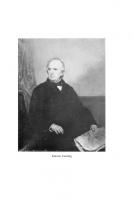Karl Helfferich, 1872-1924: Economist, Financier, Politician 9781400871834
An irascible, brilliant man, trained as an economist, Karl Helfferich became one of Wilhelmine Germany's leading fi
116 53 32MB
English Pages 462 [461] Year 2015
Cover
Contents
Preface
List of Abbreviations
I. Beginnings
Antecedents and Ancestors
Youth
The Student Becomes a Scholar
II. Political Economist
Scholarship and Controversy
Habilitation and a Libel Suit
The Writings on Money and Banking
Germany and the World
An Estimate
III. Weltpolitik
From Theory to Practice
German Colonial Development
"Getting On"
The Bagdad Railway: The Financing of Imperialism, 1906 to 1911
The Bagdad Railway: Some Accounts Are Settled, 1911 to 1914
The Bagdad Railway: An Assessment
IV. Financial Warlord
Peace and War
Secretary of the Treasury
An Estimate of Helfferich as Treasury Secretary
V. Submarines and Total War
The Submarine Warfare Controversy
Bureaucrats vs. Generals: Differing Views of Total War
The Hindenburg Program and the Auxiliary Service Law
"The Rubicon Is Crossed"
VI. Neuorientierung
The "New Orientation": Political Reform
The July Crisis of 1917
VII. The Insider Becomes an Outsider
Chancellor Crisis Again
War Aims and Other Matters
Moscow and After
The Past and the Future
VIII. Helfferich Returns to Politics
Preparations
The Campaign Against Erzberger
Helfferich, Hindenburg, and the Dolchstoss-Legende
The Erzberger Trial
Epilogue
IX. Opposition Critic
Helfferich and the Nationalists: 1919 to 1920
"In the Sharpest, But Not in Fruitless, Opposition"
Against Fehrenbach and Wirth, June 1920 to November 1922
X. Erfinder Der Rentenmark
The Rathenau Crisis
Cuno and the Ruhr Imbroglio
Erfinder Der Rentenmark: Helfferich's Explanation of the Inflation and His Stabilization Plan
Toward the Future
The Deputy in Retrospect
Conclusion
Bibliographical Note
Index
Recommend Papers

- Author / Uploaded
- John G. Williamson
File loading please wait...
Citation preview
KARL
HELFFERICH 1872-1924
KARL HELFFERICH 1872-1924 ECONOMIST,
FINANCIER,
POLITICIAN
J O H N G. WILLIAMSON
P R I N C E T O N UNIVERSITY PRESS P R I N C E T O N , N E W JERSEY 1971
Copyright © 1971 by Princeton University Press ALL RIGHTS RESERVED
L.C. Card: 74-132245 ISBN: 0-691-05145-3
Printed in the United States of America by Princeton University Press Publication of this book has been aided by the Whitney Darrow Publication Reserve Fund of Princeton University Press This book has been composed in Linotype Janson
PREFACE From the time Helfferich entered public life in 1895 to his violent death in 1924, his life was one of controversy and active participation in great events. As a young economist, he passionately defended the monetary and banking institutions on which he believed German industrial growth and Weltpolitik depended. Between 1902 and 1915, he played a more direct role in building the German Weltwirtschaft, first as an expert on economic development in the Reich Colonial Office and after 1905 as a leading figure in Wilhelmine Germany's foremost Imperial enterprise, the Bagdad Railway. As a director after 1908 of the railway's parent company, the Deutsche Bank, he was also an important member of Germany's restricted business elite. During World War I, he held a series of high governmental positions: he was Reich Treasury Secretary, Reich Interior Secretary and Deputy Chancellor, secretary of an office to coordinate economic war aims, and the last Imperial Minister to Bolshevik Russia. After the war, he joined the German Nationalist Party, the largest of the rightwing parties in the early years of the Weimar Republic. By the time of his death he had become the most important Reichstag opponent of the ruling majority's economic and foreign policies. Finally, he devised the basic plan by which the catastrophic postwar inflation was ended in 1923. In sum, although only fifty-one when he died, Helfferich had managed to pack an astonishing variety and quantity of activities into his career. The multifariousness of Helfferich's pursuits was unusual, and in ways revealing of the course German economic and political life took after 1895. Helfferich represents a type that is just the opposite of the cultural pessimists and outsiders so effectively portrayed by Fritz Stern and Fritz Ringer in their books The Politics of Cultural Despair and The Decline of the German Mandarins.1 Though by training a mandarin, Helfferich was, if 1
FrItZ Stern, The Politics of Cultural Despair: A Study in the Rise of V
PREFACE
anything, a cultural optimist and a man who wholeheartedly welcomed the prevailing trends of German economic growth. His acceptance of the Wilhelmine Empire was so complete that he was never able to reconcile himself to the republic which followed it. Since he remained the garrulous intellectual even when a man of affairs, his ideas are much more accessible than is generally the case with such men. A consideration of his career thus helps us to see some of the directions in which the German political and economic elites were developing, why even their more enlightened members were unable to grasp, let alone to solve, the problems that ultimately overwhelmed Imperial Germany, and why they rejected the Weimar Republic when it came in 1919. The Helfferich biographer has a wide variety of sources at his disposal. Before 1902, there are Helfferich's extensive scholarly and polemical writings, and after 1902, when daily administrative responsibilities began to weigh heavily upon him, a great variety of published and unpublished records. The amount of documentation on his wartime activities, in particular, is overwhelming, and after 1918, when freed from administrative duties, he wrote nearly as much as he had before 1902. A great number of Helfferich's contemporaries also recorded his passage. Because of the positions he held, his undoubted ability, and his provocative personality, he was not a man readily forgotten. What is lacking, unfortunately, are Helfferich's personal papers. Apparently never extensive, they were a casualty of the war. Such letters from him as do exist, however, suggest that the picture of the public man that emerges from available sources would not be changed very much by additional Helfferich materials. The absence of papers hurts most when one attempts to assess the ways in which Helfferich's acts may have reflected the needs of his personality. It is possible to make such assessments without intimate materials, and I believe historians ought to attempt such psychological explorations more often than they do. Lewis Edinger's biography of Kurt Schumacher shows how ilthe Germanic Ideology (Garden City, 1965); Fritz K. Ringer, The Decline of the German Mandarins: the German Academic Community, 1890-1933 (Cambridge, Mass., 1969).
vi
PREFACE 2
luminating they can be. Although some of Helfferich's acts seem to require something more than common-sense explanations, my own reading in the literature of psychology has proceeded only far enough to incline me to great caution without, regrettably, having provided me with the clues necessary to dispose of the problems of Helfferich's psyche. The picture this biography presents, then, is a straightforward one which concentrates on Helfferich the public man. In the course of writing this book I became obligated to a number of persons and institutions. As adviser and friend, Professor Hans W. Gatzke supervised this project from its inception and assisted in its completion in ways difficult to acknowledge adequately. Professors Gerald D. Feldman, Frederic C. Lane, and John L. Snell provided me with detailed criticisms of some or all of the chapters of the manuscript. Professors Lewis R. Gaty II, and Helen M. Hunter of the Swarthmore Economics Department read the economics chapters and patiently answered endless questions about their specialties. A different sort of aid came from members of Helfferich's family. His son Friedrich, in particular, offered extensive and detailed criticisms of the penultimate version of the manuscript and helped me to secure some of his father's shorter writings which had previously eluded me. He also provided the photographs of his father and put me in touch with Herr Adolf Schroeter, a younger contemporary of Helfferich's, most recently active as historian. Herr Schroeter subjected the final chapters to painstaking criticism, though in the end we had to agree to differ on many questions. Important institutional support came from the government of the German Bundesrepublik in the form of a Dankstipendium that enabled me to spend a year in Germany; from Swarthmore College in the form of grants for secretarial and publication expenses; and from Princeton Press in the form of a publication grant. I should also like to thank for their assistance the staffs of the Hauptarchiv, Berlin-Dahlem; the Geheimes Staatsarchiv, 2
Kurt Schumacher: A Study in Personality and Political Behavior (Stanford, 1965). For some interesting observations about how historians ought to proceed when they lack the more obvious kinds of psychological evidence, see Fritz Schmidl, "Psychoanalysis and History," Psychoanalytic Quarterly, 31 (1962), 532-47. VIl
PREFACE
Munich; the Bundesarchiv, Koblenz; the Politisches Archiv of the Foreign Office of the Bundesrepublik, Bonn; the National Archives, Washington, D.C. and the libraries of Bonn University, Johns Hopkins University, and Swarthmore College. Finally, thanks are due Ruth M. Kimmerer and Eleanor Bennett for their excellent typing, and my wife Lynn, who nurtured the inner and the outer man.
viii
CONTENTS
Preface
ν
List of Abbreviations
xi
I. Beginnings
3
Antecedents and Ancestors Youth The Student Becomes a Scholar
II. Political Economist
3 7 12
18
Scholarship and Controversy Habilitation and a Libel Suit The Writings on Money and Banking Germany and the World An Estimate III. Weltpolitik
19 30 39 49 55 60
From Theory to Practice German Colonial Development "Getting On" The Bagdad Railway: The Financing of Imperialism, 1906 to 1911
60 62 76 80
The Bagdad Railway: Some Accounts are Settled, 1911 to 1914
96
The Bagdad Railway: An Assessment
IV. Financial Warlord
106
111
Peace and War Secretary of the Treasury An Estimate of Helfferich as Treasury Secretary
V. Submarines and Total War The Submarine Warfare Controversy Bureaucrats vs. Generals: Differing Views of Total War The Hindenburg Program and the Auxiliary Service Law "The Rubicon is Crossed"
VI. Neuorientierung
111 121 141
151 155 162 171 187
197
The "New Orientation": Political Reform The July Crisis of 1917
ix
199 218
CONTENTS VII. The Insider Becomes an Outsider
239
Chancellor Crisis Again War Aims and Other Matters Moscow and After The Past and the Future
239 255 270 285
VIII. Helfferich Returns to Politics Preparations The Campaign Against Erzberger Helfferich, Hindenburg, and the Dolchstoss-Legende The Erzberger Trial Epilogue
IX. Opposition Critic
288 288 291 302 312 327
330
Helfferich and the Nationalists: 1919 to 1920 "In the Sharpest, but not in Fruitless, Opposition" Against Fehrenbach and Wirth, June 1920 to November 1922
X. Erfinder der Rentenmark The Rathenau Crisis Cuno and the Ruhr Imbroglio Erfinder der Rentenmark: Helfferich's Explanation of the Inflation and his Stabilization Plan Toward the Future The Deputy in Retrospect
330 337 344
365 365 373 383 394 402
Conclusion
407
Bibliographical Note
415
Index
425
χ
LIST OF ABBREVIATIONS ARR "Berichte"
Anatolian Railway. "Akten dem bayerischen Ministerium des Ausserens, Gesandtschaft Berlin, Politische Berichte," in the Bayerisches Hauptstaatsarchiv, Abteilung n, Geheimes Staatsarchiv, Munich, Germany. This file contains reports of the long-time Bavarian minister to Berlin, Count Hugo von Lerchenfeld, which, along with the Lerchenfeld correspondence "Briefwechsel" and "PA" listed below, are a very valuable source for wartime domestic politics.
Bauer "Nachlass"
The papers of Colonel Max Bauer, in the Bundesarchiv, Koblenz, Germany. A few items pertinent to the July Crisis of 1917. "Briefwechsel des bayerischen Gesandten Grafen Lerchenfeld mit Ministerprasidenten Grafen Hertling . . . und mit Ministerprasidenten von Dandl, 1916-1918," Geheimes Staatsarchiv. Berliner Tage Matt. "Kriegsstelle zur Vorbereitung der Wirtschaftsfragen fur die Friedensverhandlungen (Spezialbiiro Dr. HelfTerich)," in the Deutsches Zentralarchiv, Potsdam, Germany. A few items of value for Helfferich's
"Briefwechsel"
BT "Buro HelfTerich"
xi
L I S T OF
ABBREVIATIONS
activities in the winter of 1917-1918. Professor Fritz Fischer was so kind as to allow me to use some of his notes from the Zentralarchiv, which was closed to me in 19611962. DB
Deutsche Bank.
DDF
France, Commission pour la publication des documents relatifs aux origins de la guerre de 1914-1918, Documents diplomatiques Frangais (Paris, 19295.). Some documents from the 3rd Series (19111914) are of importance for the Franco-German Bagdad negotiations of 1913 and 1914. Politische Abteilung, "Deutschland 131: Akten betreffend das Verhaltnis Deutschlands zu Russland," Bde. 42 ff., in the German Foreign Office, Bonn, Germany. The principal source for Helfferich's activities as minister to Moscow in the summer of 1918. German Foreign Office. Germany, Auswartiges Amt, Die grosse Politik der europaischen Kabinette, 1871-1914: Sammlung der diplomatischen Akten des Aus•wartigen Amtes, eds. Johann Lepsius, Albrecht Mendelssohn-Bartholdy, and Friedrich Thimme (40 vols., Berlin, 1922-1926). The most valuable printed source collection for Helfferich's activities with the Bagdad Railway, this collection is cited where possible in preference
"Deutschland" 131
FO GP
xii
L I S T OF A B B R E V I A T I O N S
to the originals in the Foreign Of fice files. GStA
Geheimes Staatsarchiv, as under "Berichte" above.
"HB"
RI: Reichsinstitut fur Geschichte des neuen Deutschlands "[Arndt von] Holtzendorff Berichte [an Al bert Ballin]," in the Bundesarchiv, Koblenz, Germany (formerly in the Hauptarchiv, Berlin-Dahlem). This collection, invaluable for Helfferich's wartime activities, con sists mainly of reports (Berichte) from Holtzendorff in Berlin to his employer Ballin in Hamburg and notes (Notizen) on their joint ac tivities when Ballin came to Berlin. For a fuller description of the col lection, see Lamar Cecil, Albert Ballin: Business and Politics in Imperial Germany, 1888-1918 (Princeton, 1967), 249-57, 357-58.
IFA
Erich Matthias and Rudolf Morsey (eds.), Der Interfraktionelle Ausschuss ιιη/ι8 (ζ vols., Dusseldorf, 1959). This is the most valua ble single source for Helfferich's activities during the political crises of the summer and fall of 1917.
"Kabinett-Protokolle"
AIte Reichskanzlei, "Kabinett-Protokolle," in the microfilmed records of the German Foreign Office in the National Archives, Washing ton, D.C. A few items of use for the postwar period. Where possible, microfilmed documents are cited as follows: serial number, if any/ xiii
LIST OF A B B R E V I A T I O N S
"Kleine Erwerbungen';
Money
container number or filming project designation/frame number, if any. "Kleine Erwerbungen," 45.4, Bundesarchiv. A few inconsequential Helfferich items from the postwar period. Karl Helfferich, Money, ed. T. E. Gregory (2 vols., New York, 1927), a translation of the 6th edn. of Helfferich's Das Geld (Leipzig, 1923).
NAZ or DAZ
"PA"
"Preussen" n
Prozess
Norddeutsche Allgemeine Zeitung; after 1918 the Deutsche Allgemeine Zeitung. "Politische Akten, besonders Berichte, Krieg 1914/18," Geheimes Staatsarchiv. Politische Abteilung, "Preussen 11 seer.: Staatsministerial- und Kronraths-Protokolle," German Foreign Office microfilm in the National Archives. Although very useful for Helfferich's wartime activities, this collection of protocols is incomplete. Der Erzberger-Prozess: Stenographischer Bericht iiber die Verhandlungen im Beleidigungsprozess des Reichsfinanzministers Erzberger gegen den Staatsminister a. D. Dr. Karl Helfferich (Berlin, 1920).
'Reichssteuern"
"Acta KgI. Bayer. Staatsministeriums, des Koniglichen Hauses und des Aeussern: Reichssteuern iiberhaupt bzw. Beratungen iiber die Vermehrung der ReichseinnahXlV
LIST OF A B B R E V I A T I O N S
Reichstagsreden l
![Alexander James Dallas: Lawyer, Politician, Financier, 1759-1817 [Reprint 2016 ed.]
9781512813906](https://ebin.pub/img/200x200/alexander-james-dallas-lawyer-politician-financier-1759-1817-reprint-2016nbsped-9781512813906.jpg)








